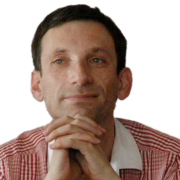

At the last Davos Forum in January 2023, former US Secretary of State Henry Kissinger, considered the patriarch of American diplomacy, clearly advocated Ukraine’s accession to NATO.
Henry Kissinger explains his new approach to the circumstances and changes with past beliefs. After the annexation of Crimea and the attack on Donbas, he continued to advocate a neutral status for Ukraine. Even after the outbreak of the ongoing war, Kissinger was cautious about Ukraine’s inclusion in the Euro-Atlantic security network, without explicitly mentioning NATO membership. After 2014, he feared that Ukraine’s accession to NATO would lead to the current events. Since his fears have unfortunately come true, what remains to be done to prevent Ukraine from joining NATO?
We are witnessing the change in Western thinking that Vladimir Putin overlooked when planning his invasion of Ukraine. The main fear of the civilized world – after two world wars – has always been the return of another one!
The West was very cautious and always made great efforts to maintain peace. Therefore, the West was willing to make almost any compromise with Russia to ensure that Europe would never again be at war on a large scale. Among many other political decisions, Western countries refused to admit former Soviet republics into NATO. They also allowed costly energy deals. Such projects were not so much for profit as to stop the economic pressure on Russia’s neighbors from the Nord Stream gas pipelines. The West also ignored Russia’s destructive role in regional conflicts. The Kremlin was involved in initiating these military confrontations.
The recent interview with former German Chancellor Angela Merkel for Die Zeit, which Putin so insistently cites as proof that he was lied to, is imbued with a desire to keep the peace throughout the country. Like other Western politicians of her generation, Merkel did everything she could to prevent the outbreak of another Great War. And she lost.
If war breaks out, there’s nothing left to use as leverage
The fear of war has not disappeared in the West. The problem is that brutal military action has already begun. All the consequences for the elimination of which the civilized world was ready to make concessions have occurred. Russia has destroyed international law and created a tug-of-war. In this context, why should the West refuse Ukraine and other countries that want to join NATO? Why should it not help restore the territorial integrity of Ukraine and other former Soviet republics? Is there any legitimate reason why the West should be interested in positive relations with Russia in the energy market?
From Putin’s point of view, war is the continuation of politics. The continuation of politics is the threat of war itself. When war breaks out, there’s nothing left to blackmail the other side. The Kremlin has been preparing for war for a long time, believing that the energy dependence of European countries, especially Germany, would make the Europeans refuse to help Ukraine and accept its occupation. German Finance Minister Christian Lindner recently said that Germany was no longer dependent on Russian energy sources.
Moscow hoped that the blockade of Ukrainian ports and the suspension of grain exports would lead to a global disaster, famine and a huge migrant crisis in Europe. As a result, the reluctance to spoil relations with the West and the “global South” led to the conclusion of the grain deal.
This leaves the Kremlin with only the threat of nuclear use as a means of blackmail. But even that doesn’t help Moscow. Surprisingly for Putin, the West also responded with a declaration to use force against Russia. Who would have thought it?
Kissinger, who turns 100 in May, has once again shown himself to be more observant than his younger colleagues. He has begun to sketch the contours of a new postwar world in which Russia can be talked to, but not persuaded, and certainly not subjected to crazy demands. Putin is already a political loser. He became one when he started the war in Ukraine.
Vitaly Portnikov for Vot-Tak.tv / belsat.eu
The opinions and thoughts expressed in this text reflect only the author’s view.
Translated by PEV
The opinions and thoughts expressed in the text reflect only the author's views.


